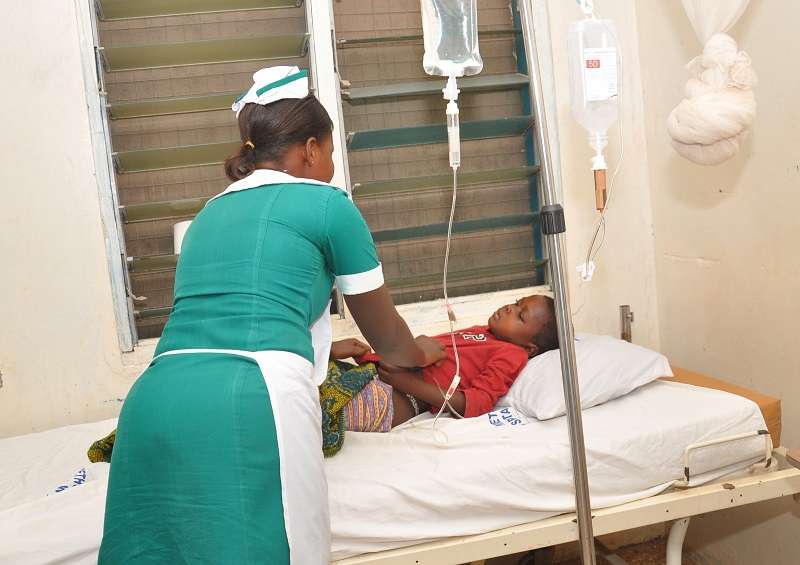The Ghana Medical Association (GMA) has put forth a groundbreaking proposal advocating for the cancellation of certificate and diploma nursing programs, calling for the elevation of all nursing education to the degree level.
This significant shift aims to address the persistent challenges within the country’s healthcare sector by ensuring a more qualified and professional nursing workforce.
Professor Ernest Yorke, the Vice President of the Ghana Medical Association, in a statement, expressed grave concerns over the current system, which permits three different academic qualifications as entry points for the recruitment of nurses.
He described this arrangement as “bizarre” and stressed the perplexity and inefficiency it introduces to the healthcare system.
“We think that the majority must be degree-prepared. We have to cancel certificate programs, we have to cancel diploma programs, and train nurses and midwives at the degree level. We have the human resources and the schools so we can do that”.
Professor Ernest Yorke, the Vice President of the Ghana Medical Association
Professor Yorke further underscored Ghana’s capacity to implement these changes given its existing resources and educational institutions.
Drawing comparisons with some neighboring African countries, including Nigeria, where registered nurses and midwives are required to hold a first degree, Professor Yorke argued that Ghana can achieve similar standards.
The Dominance of Auxiliary Nurses
He highlighted the current dominance of auxiliary nurses, who constitute nearly 60% of the nursing workforce, as a critical issue that needs addressing.
The predominance of these less qualified personnel, he contended, underscores the urgent need for a more robust and comprehensive educational framework for nurses and midwives.

Furthermore, the Vice President of the Ghana Medical Association, Professor Yorke highlighted the anticipated benefits of this overhaul, particularly in improving maternal health indicators.
Citing research on the effectiveness of a highly skilled nursing workforce, he emphasized that preparing all nurses at the baccalaureate level would significantly enhance the quality of healthcare delivery in Ghana.
Addressing concerns about the existing workforce, Professor Yorke reassured that current certificate and diploma holders would not be left behind.
“If we cancel the training of diploma and certificate, we can upgrade the knowledge of those who are here,” he stated, pointing to already available courses designed to help nurses and midwives upgrade their skills to the degree level.
He emphasized that the Ghana Medical Association’s proposal represents a bold move towards elevating the standards of nursing education in Ghana.
He pointed out that by advocating for a degree-only entry requirement, the Ghana Medical Association aims to foster a more competent and professional healthcare system capable of addressing the country’s evolving healthcare needs.
In addition, Professor Yorke indicated that the initiative, if implemented, could pave the way for significant advancements in the healthcare sector, ensuring that Ghana’s nursing workforce is well-equipped to provide high-quality care.
He emphasized that the Ghana Medical Association’s stance underscores the importance for the country to invest in education and training to build a resilient and effective healthcare system.
READ ALSO: Stanbic Bank and Georgetown University Forge Partnership to Advance Digital Innovation























